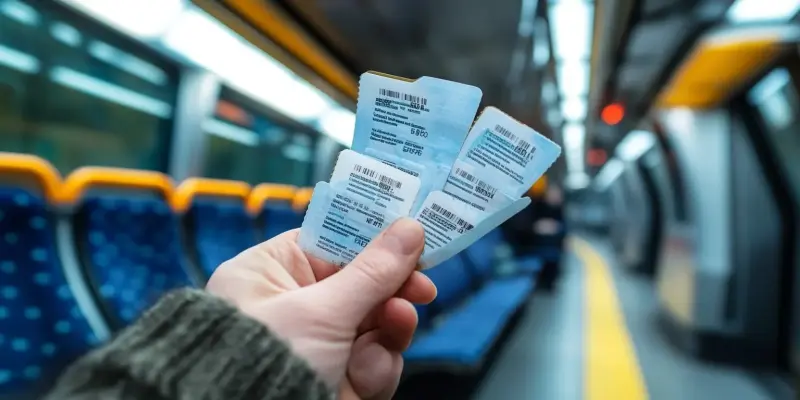Imagine attending the world’s largest religious gathering armed with a digital ticket that is also a unique piece of art; this is what Indian Railways is planning for the upcoming MahaKumbh Mela. An event of such magnitude, occurring once every 144 years, is about to experience a tech revolution as Indian Railways introduces non-fungible token (NFT)-based train tickets. These tickets represent a partnership between the Indian Railway Catering and Tourism Corporation (IRCTC) and Chaincode Consulting and leverage blockchain technology to blend convenience with the spiritual significance of the event.
Leveraging Blockchain for Pilgrimage
As the MahaKumbh Mela approaches, the IRCTC has opted to mint NFT tickets on the Polygon blockchain. This choice is driven by Polygon’s scalability, low transaction fees, and environmental sustainability. Pilgrims can access these tickets through the NFTtrace platform, setting the stage for a seamless, digital-first experience. Each day, around 1.2 million train tickets are currently booked via the IRCTC platform, highlighting the potential impact of this groundbreaking initiative. By adopting NFTs, Indian Railways aims to expand its audience, attracting not just the regular demographic but people from across the globe. This underscores the growing influence of public blockchains in enhancing transparency and eliminating intermediaries.
The Global Significance of Kumbh Mela
The Kumbh Mela is recognized by UNESCO as an Intangible Cultural Heritage of Humanity and attracts the attention of millions worldwide. The upcoming MahaKumbh Mela in 2025 is projected to draw influential figures, such as Laurene Jobs, signifying its global importance. The integration of modern technology with traditional cultural events provides a unique opportunity to elevate the festival’s profile further. These NFT tickets offer more than just entry to the event; they serve as digital souvenirs, celebrating the unique cultural heritage of the cities involved.
Prior Successes and Future Prospects
Indian Railways has dabbled in the use of NFT tickets before, such as during the Holi festival in March 2024. In that campaign, each NFT ticket functioned both as a practical travel document and a digital art piece commemorating the cultural essence of various cities. The blockchain verification of these tickets ensures enhanced transparency and security, vital for an event as large as the MahaKumbh Mela. Utilizing the Hyperledger blockchain for ticket record maintenance and employing smart contracts for traceability, Indian Railways exemplifies the effective integration of cutting-edge technology into traditional systems.
A Bold Step Towards Modernization
Imagine attending the world’s largest religious gathering with a digital ticket that not only grants you entry but is also a unique piece of art. This is the vision Indian Railways has for the upcoming MahaKumbh Mela. Taking place once every 144 years, this enormous event is set for a technological upgrade as Indian Railways unveils non-fungible token (NFT)-based train tickets. This innovative approach is a result of a collaboration between the Indian Railway Catering and Tourism Corporation (IRCTC) and Chaincode Consulting. Utilizing blockchain technology, these NFT tickets aim to merge modern convenience with the profound spiritual importance of the event. As attendees prepare to journey to this significant pilgrimage, they can expect a seamless and secure ticketing experience. This blend of advanced technology ensures that travelers can focus on the spiritual enrichment of the MahaKumbh Mela without the typical hassles associated with the sheer scale of such a grand event. The introduction of NFTs represents a step toward integrating tradition with modern innovation.

